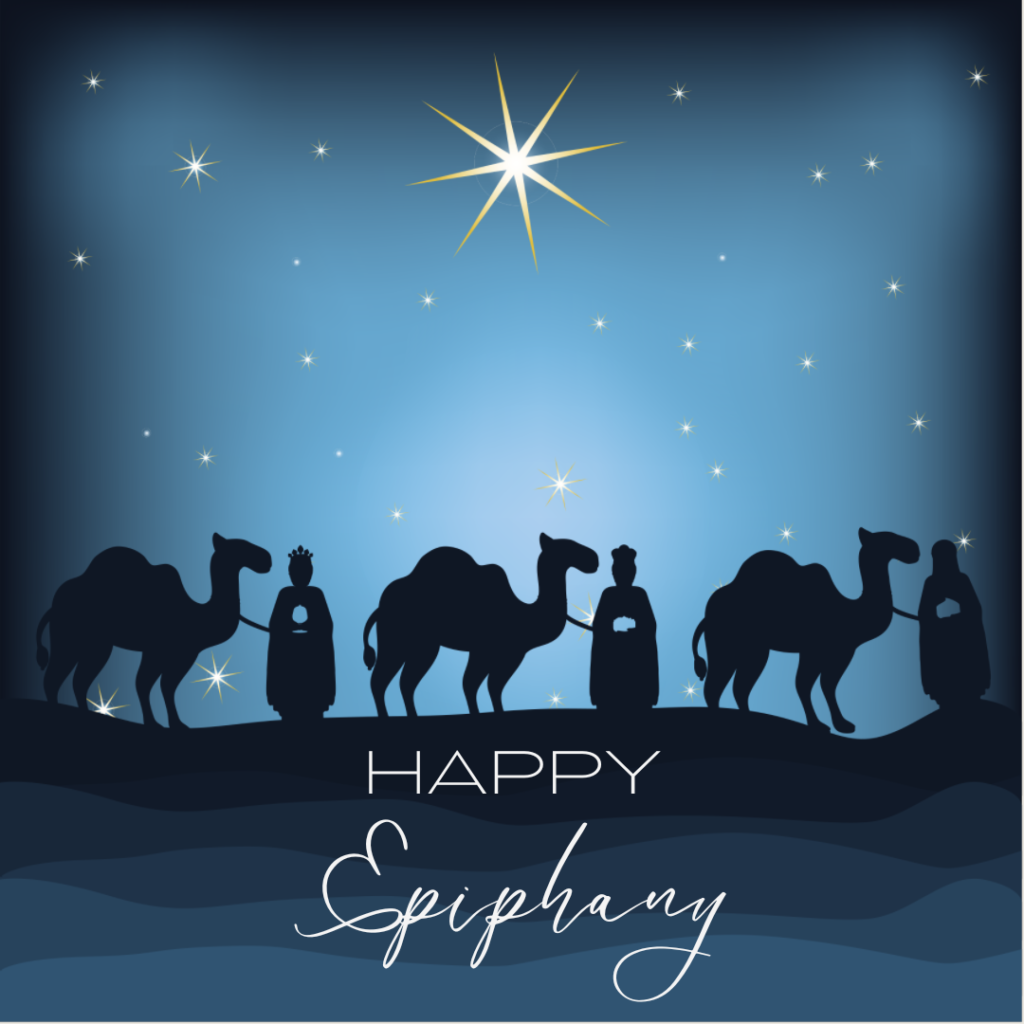A Messiah for All People
Louis H Valbracht, St. John’s Lutheran Church
Ephesians 3: 2-12

Several years ago, a young woman strayed into our church. At nineteen years of age, she had been a prostitute, had borne an illegitimate child, been married and divorced, and was well on her way to alcoholism. She wanted, and desperately needed, the help of the Gospel of Jesus Christ. She needed a Savior.
She had a beautiful singing voice, and I suggested that she begin her relationship with our congregation by joining the choir. After the first rehearsal and the first service at which this woman sang with the choir, I heard one of the elderly members of the choir say to a friend of hers: “And there she sat, right in the choir, along with the rest of us, just like she belonged there.” What a tragedy!
Another time, in another city, I heard a neighboring church referred to by one of its members as a “very exclusive church.” What a horrible contradiction! How could that organization, whatever it was, be a part of the church of Jesus Christ and be “exclusive?”
In another case, a church member told me one time about a family of prospective members whose names I had received from someone in the congregation. Those prospects happened to be the neighbors of the member who gave his estimate. He said to me: “Quite confidentially, Pastor, I don’t think you would want them as members of our church. They just are not our kind of people.”
And so it has gone, the terrible exclusiveness of part of the church of Jesus Christ, negating the message of the Gospel, which was meant for all people, the understanding of which first came about through the dynamic, untiring efforts of the Apostle Paul, who almost single-handedly carried that Gospel outside of the Jewish culture where some people, including St. Peter himself, sought to confine it.
The Twelfth Day
We like to sing about the “Twelve Days of Christmas.” We go through the whole song to the twelfth day of Christmas. But I venture to say that if I were to ask you what is the twelfth day of Christmas, there would be probably half of you that wouldn’t know. Usually, even though we sing about the twelve days of Christmas, we never make it. By that time, our trees are down, the decorations are all packed in their usual places for another year, the children are back in school, and the January White Sales have begun.
What is the twelfth day of Christmas? It is January 6th, the Epiphany of our Lord. Epiphany was the first Christmas, the most ancient celebration of Christmas in Christendom, and a lot more valid, incidentally, than December 25th. We put the festival of the birth of Christ on that date so that we could compete with the pagan festival of Saturnalia. Epiphany was the great celebration. That word coming from the two Greek words epi and phaino, means, “to show forth.” The glory of Christ was shown forth, for this is the day that we observe the visit of the Magi or the Wise Men to the child Jesus, and notice that I said “child,” not “infant.”
I am sure that you are well aware by this time that contrary to much of our Christmas art and imagery and Christmas cards, and even our creche out in front of the church, that the Magi did not arrive at the same time as the shepherds at the stable in Bethlehem. They arrived between one and two years after the birth of Christ. Mary and Joseph and the young Jesus was not living in a stable at that time. The Gospel clearly states that they were living in a home. And it doesn’t call Jesus an “infant,” it calls him a “young child.”
The Magi
We sing “We three kings of Orient are.” But there are three things wrong with that song. In the first place, they weren’t kings. In the second place, they weren’t from what we consider the Orient. And, in the third place, there weren’t three of them. And yet, we sing that song as one of our Epiphany hymns.
Actually, these men came, not from what we call the Orient, but from the area of ancient Babylon, the Tigris-Euphrates valley. They were men who were much more respected than kings, because, in those days in the Middle East, kings were a dime a dozen. These were the representatives of the school of the Magi. They were the astronomers, the astrologers, the scientists, the physicians, the prophets, the religious seers of their day. At the height of their fame and influence, they were honored far above kings, because kings were not particularly notable for being wise men. Kings don’t travel somewhere to worship other kings. They usually are going out to kill them.
But here is the Epiphany, the “showing forth” of the glory of Christ. Here is the miracle of joy.
Here was a marvelous manifestation in the heavens – a star so new, so brilliant, so unusual that it stirred the school of the Magi into immediate contemplation and study, and finally action. What did the Magi see? What kind of star? Is it still in the heavens? Why did nobody else see it? Remember, they were Zoroastrians. They were astrologers, the chief astrologers of their day. They were the ones who believed – the way some people foolishly believe today – that the movement of stars had something to do with the behavior of people upon earth. And so, through calculations of astronomers and historians, we have determined that Christ was born, not in the year 1, but because of many changes and mistakes in our calendar, He was born in the year 6 or 7 B.C.
Now in the 17th Century, the astronomer Kepler found that something did occur in the year 7 B.C. that only occurred once every 805 years in the solar system. And so, obviously, the Magi could have known nothing about that. In 7 B.C., in the winter, there occurred a very close grouping – actually a juxtaposition – of the three planets Mars, Jupiter and Saturn, as they were viewed from the earth. They became, literally, one light in the sky, more brilliant, obviously, than anything else in the sky at that time. That grouping occurred under the sign of the Zodiac, Pisces, in the winter. Some of you have noted that in my regular clerical garb I sometimes wear a medallion with the figure of Pisces on it. That is not because I’m an astrologer or believe in astrology. It is a Christian symbol. It symbolizes the coming of Christ, and it was the first symbol of the early church, not just because I was born in that period of the year. The sign of the fish!
This portion of the sky in which this juxtaposition occurred was known as the House of the Hebrews. And so, it was perfectly readable to the Magi as they studied the stars as though planets came together in the grouping that had never before occurred in their experience, and it occurred in the House of the Hebrews. It was obvious that something important was happening to the Jews. And since they knew that the Jews expected the coming of a great king, it was obvious to them that he had apparently come. And so, they eventually started out on their caravan, and it was about sixteen months later, in the spring of 6 B.C., that something happened that only happens once every one hundred twenty-five years in the solar system. The planets of Jupiter and Saturn came together, and to the Wise Men looking at it from Jerusalem, it appeared right over Bethlehem. So it is explained why the Wise Men knew that Jesus was born in Bethlehem.

The Irony of Epiphany
This marvelous manifestation happened, and yet the shepherds of Bethlehem didn’t see it. You know, we send out Christmas cards showing the shepherds out in the fields and the star shining above them. Well, that’s ok, if you want to put the star in, but don’t show the shepherds looking at it, because they didn’t see it. The priests and Levites didn’t see it. The Romans didn’t see it. Herod didn’t see it. And here was the sad beginning of the fulfillment of the prophecy: “He came unto his own, and his own received him not.”
Here is the irony of God’s revelation of Himself to us. The first to fall down and worship Jesus Christ as divine king were not the ones who were supposedly waiting and watching for him, but the despised, the hated, the pagans, the heathen. They fell down and worshiped him. They came, as they told Herod, for the expressed purpose of worshiping him.
Everyone else was so preoccupied with the pettiness of life that they didn’t notice the coming of Christ. They were too busy even to notice that the King of kings had come. But that is typical, even in our day.
Back in the early 1950s, the world was all involved in what we called the cold war. Oh, we were fighting a nasty little was over in Korea, but that wasn’t really important. What was important was the cold war, in which the world was choosing up sides over the barbed wire of the Berlin wall. Everyone was wondering about the balance of terror between the Communist countries and the so-called Free World. Everyone was concerned about the arms race, the atomic race, the missile race. Everyone wondered when World War III would begin, and how. The old, moldy, empty minds among the military and political leaders on both sides in the cold war thought nothing else except the inevitability of a final, tragic confrontation between these two opposing sides, and so we were feverishly preparing for that.
Nothing that a generation of babies was being born throughout the world at that time, and those babies are now young adults or students. Today in every part of the world, those young adults are soundly rejecting the tired, old, stupid cliches of the tired, old, stupid, statesmen and militarists of the world. They no longer accept the inevitability of war. They no longer believe the scare warnings of the militarist. Thousands of them refused to take part in our war in Vietnam. They are well on their way to rejecting forever war as an instrument of international relationships. Yes, in the 1950s everybody was looking at the arms race. No one noticed that God was bringing to life a generation which might take a good look at all of this and get rid of both piles of that bloody junk their fathers had paid for!
Twenty years ago, the church was in its heyday. The heyday was popularity, and the church was feverishly building up the establishment. One denomination competed with another for numbers, wealth, power and prestige. The church moved to the suburbs to attract the more affluent. Left behind were the plaguing problems of the inner city – the poverty, the hunger, the unemployment. Left behind was the question of racial equality in the churches. The parishes sought refuge in the lily-white suburbs and neighborhoods where they deal with such problems by ignoring them. They didn’t kow that at the time they were raising their statistics of “success” in their own eyes, they were also raising a generation of young people who would reject this kind of “Establishment” church in all of its glory and strength and wealth. We were raising youth, both white and black and brown and yellow and red, who would ask” “But what is the church doing to carry out the mandates of the Gospel of Jesus Christ about these problems that we face today? How relevant is this organization? Does Christianity mean anything?” They are still asking that.
It’s up to Us
And so, history repeats itself. We are the people of God. We worship every week in His temple. We read the Scriptures. We know all about the promises about the Second Coming of Christ. And yet, we are so preoccupied with our own little projects that when Christ comes in Spirit in revolutionary power in our culture, we don’t recognize Him. In fact, we even resent and resist the upsetting influence the Gospel has when it interjects itself into our social and national and international lives. It threatens our position as the self-righteous policemen for the rest of the world.
Here, then, was the irony of the coming of the Magi. The ones to whom the Messiah was promised were too busy worrying about the preservation of the kingdom to know that the king had come. They saw no star. They experienced no light. But, lo, Jesus was born in Bethlehem, and there came pagans, Gentiles, heathen, from the East who said: “We have seen his star and have come to worship.” What about you? Have you seen the star?
No, we don’t preach every Sunday that Christ is coming soon, that we know this by private knowledge or study of the Scriptures. That’s nonsense! There’s not a word in Scripture that tells us anything about when Christ is coming, and there will be no one, the Scripture tells us, who knows the day or hour of his coming.
No, we don’t know when he is coming, but we know he is coming, not alone to the Jews, or to the Americans, or to the civilized white people of the Western Hemisphere, but as a Messiah, a Savior for the whole world! As it says in blazing words in the Gospel: “For God so loved the world that he gave his only begotten Son.”


